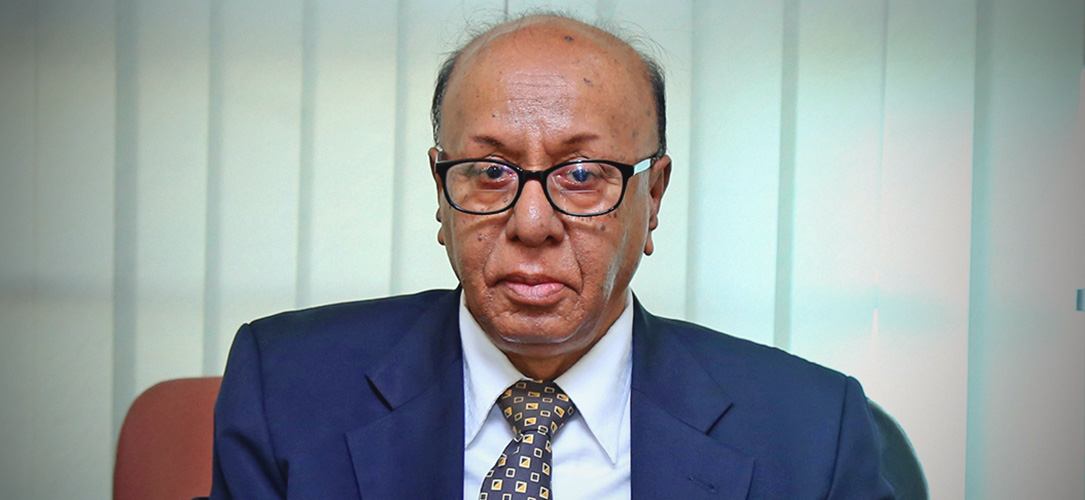THE GAINS OF JOBLESS ECONOMY
What’s your take on the current growth performance of Bangladesh? By when do you think we will be able to achieve double-digit growth?
A country’s growth performance can be evaluated in two ways. First, how a country is performing over time. Second, how its performance compares with that of other countries, particularly neighboring ones. By both criteria, growth performance of Bangladesh has been quite satisfactory in recent times. The growth of GDP in Bangladesh averaged 5.9% during the period 2000-2010; 6.2% during the period 2011-2015 and 6.9% during 2016-2017. Among a sample of 12 Asian countries (Bangladesh, Cambodia, China, India, Indonesia, Korea, Laos, Malaysia, Pakistan, Singapore, Sri Lanka and Vietnam) six countries had higher GDP growth than Bangladesh during the first period, the number of such countries declined to five in the second period and only three during the last period.
To achieve double-digit growth is a formidable challenge for any country. Among the sample of 12 countries mentioned above, only China achieved this feat only during the 2000-2010 period. This was possible because of much higher investment / GDP ratio which was as high as 44% in 2016 as against 30% in Bangladesh. In this scenario, I do not expect Bangladesh to achieve double-digit growth in the near future.
In an interview with the Daily Star, you mentioned the recent budget to be unrealistic, since there is nothing new when it comes to fiscal measures. What fiscal measures you think should have been there to ensure implementation?
I maintain that FY’19 budget is unrealistic on the revenue side as well as on the expenditure side. Revenue / GDP ratio rose by less than 1% over a period of six years between FY’12 and FY’18. FY’19 budget stipulates a 1.8% increase in a single year. Expenditure / GDP ratio rose by 1.3% over the same time period of six years while FY’19 budget postulates a 1.7% increase in a single year. The impracticability of achieving such targets requires hardly any explanation.
There is absolutely no question that Bangladesh needs to considerably increase both revenue collection and expenditure implementation. As far as revenue is concerned the expansion of the tax net is crucial. This has to be reinforced by improved performance of state-owned enterprises so that they can contribute positively to government revenues. On the expenditure side, the competence of administrative personnel has to be improved and they should be made accountable for failure to utilize the expenditure allocations.
In the current budget, the investment to GDP ratio has risen by 4%. Which according to you is impossible to achieve in a year. What measures can enhance the ratio? How can we make public sector investment more cost-effective?
Investment / GDP ratio rose from 28.26% in FY’12 to 31.47% in FY’18. The contributions of private investment during respective years were 22.50% and 23.25%. Here again, the anticipated target for FY’19 is patently unrealistic. In order to increase private investment, the well-known constraints have to be drastically alleviated. The constraints include difficulties in access to land, deficiencies in transport infrastructure, shortage of gas and electricity and unfriendly regulatory regime. Bangladesh ranks 177th out of 189 countries in “Ease of Doing Business” indicators of the World Bank.
In this regards, the public sector is ripe with the investment the temptation to include too many projects in ADP with inadequate allocations leading to time as well as cost overruns that should be avoided. The selection of project directors should be based on merit and they have to be made accountable for their performance. A system of incentives which reward good performers and punish the bad ones should be put in place.
Recently Japan Tobacco bought Akij’s tobacco wing for $1.5 billion, the single most FDI flow in our history. On the other hand, domestic investors are not very keen to drain their money in new projects. Do you think this will interest other investors? How can we rev up their investments?
Acquisition of an existing nationally owned enterprise by a foreign investor does not necessarily add to productive capacity, though in some cases that may happen. At any rate investment in a tobacco company is hardly desirable from the point of view of public health. I don’t think that Japan Tobacco’s purchase will give much boost to new foreign investment in other sectors. In order to increase both domestic and foreign private investment what is needed is to remove the constraints that I have already mentioned above.
Several studies conducted by Policy Research Institute show that tariff policies in Bangladesh generally create an anti-export bias for new products. Such bias should be eliminated. Could you explain the biases and how they should be eliminated?
Anti-export bias from highly protective tariff policies arises from the fact investors in import-substituting domestic products can make hefty profits even if they are inefficient. Therefore, they are not motivated to engage in the production of new export products which involve competition with exporters from other countries. I think it is high time for Bangladesh to undertake a comprehensive analysis of trade and industrial policies which can form the basis of a thoroughly revamped tariff structure.
Several banks have already lost their depositors’ confidence due to severe malpractice. How should they bring back their customer’s goodwill?
The first priority in restoring depositor’s confidence in the banking system is to reduce the magnitude of non-performing loans. Several actions are needed to achieve this objective. The actions would include a grant of loans based on professionally acceptable loan proposals. Stoppage of grant of loans on the basis of relationships with directors, non-interference from the political authorities in sanction as well as recovery of non-performing loans and expeditious disposal of loan related cases while ensuring that deliberate defaulters are subjected to visible punishment sanctioned by relevant laws.
Local companies are interested to try their luck in offshore investment. How do you see this development?
I support selective permission to local companies to make the offshore investment. Such proposals should be rigorously evaluated form the perspective of their economic viability and potentials to repatriate profit back to Bangladesh in the near future. One has to ensure that these proposals are not simply another means for a flight of capital.















